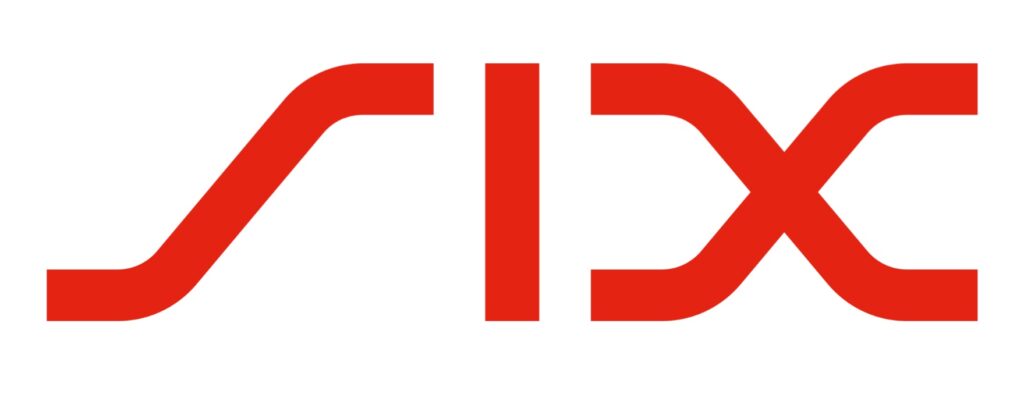Previously dominated by retail investors, institutions – including major fund managers – are now starting to build up exposures to digital assets in greater numbers. This is forcing post-trade providers to re-think their strategies, and develop new infrastructure to facilitate trading in these asset classes.
By Brendon Bambury – Head Sales & Relationship Management UK, Nordics & Benelux, SIX

With unpredictable markets taking their collective toll on returns, investors are seeking out new income streams and risk diversifiers, leading digital assets to find their niche in portfolio construction. Over the last few years, some investors have ramped up their exposures to digital assets, including crypto-currencies – such as Bitcoin and Ethereum. Although the so-called “Crypto Winter” has shaved more than $2 trillion off the market cap of crypto-currencies bringing it down to below $1 trillion, interest in the asset class has not fully diminished. In fact, many investors now see crypto-currencies as a complement to their existing baskets of traditional securities.
While a lot of investors are obtaining direct exposure to crypto-currencies, a significant proportion are also accessing the asset class indirectly either through derivatives instruments or exchange traded products (ETPs). According to market data provider cryptoCompare, 63% of all of the trading volumes taking place in crypto-currencies are now derivatives-based. Elsewhere, a study by ETC Group – a provider of digital asset securities – found 53% of European professional investors said they would prefer to trade Bitcoin indirectly via ETPs. Activity is certainly buoyant in the crypto-currency ETP market. Data shows that trading turnover on the SIX Swiss Exchange in products with crypto-currencies as underlyings exceeded the CHF 8 billion mark for the first time to top CHF 8.6 billion in 2021, corresponding to a 673% year on year increase. The number of transactions also rose six-fold in 2021 with 354,542 trades being carried out involving crypto-products – a 634% jump from 2020.
In addition to crypto, there is growing institutional appetite for fractionalised assets. Fractionalisation allows investors to obtain stakes in real world assets – such as fine art – but without having total ownership. As such, the cost of acquiring holdings in these assets is much cheaper. Most significantly, fractionalisation could bring liquidity to markets which have traditionally been illiquid, if at all traded.
The infrastructures respond
Although the volume of trading in digital assets is unlikely to supersede the activity in traditional markets any-time soon, forward thinking FMIs (financial market infrastructures) do need to consider how they can support these new instruments. So what are leading providers doing about this?
Today, OTC (over-the-counter) derivatives spanning foreign exchange, equities, credit and commodities being traded by EU financial and non-financial firms are subject to mandatory clearing obligations under EMIR (European Market Infrastructure Regulation). In the case of SIX, its acquisition of Spain’s BME Group has helped it to widen its clearing capabilities and it can now support interest rate swaps plus forward rate agreements and overnight indexed swaps. Moving forward, there is a possibility that crypto-derivatives could be subjected to the exact same clearing requirements as OTCs.
A number of providers – including SIX – are ahead of the curve here, having already developed cutting edge solutions to support clients trading digital assets indirectly either through derivatives or via ETPs. For instance, SIX and LMAX Group, a leading operator of institutional exchanges for FX and crypto-currency trading partnered in March 2022 to launch cash settled, centrally cleared crypto-asset futures. The launch will include centrally cleared USD settled Bitcoin and Ethereum futures, trading 23 hours, five days a week, with the full product roll out to be extended to 24/7 trading. In addition, SIX is also providing clearing services to a crypto-currency ETP – ETC Group Physical Bitcoin.
That established FMIs are now rolling out solutions to support clients trading digital assets is a massive confidence boost for the market, and will encourage more institutions to incorporate these new asset classes into their portfolios.
Explore our clearing services: six-group.com/clearing
About the author

Brendon Bambury is Head Sales & Relationship Management UK, Nordics & Benelux at SIX where he is responsible for sales and client activity of our clearing, settlement and global custody services. He has been in the securities services industry since 1998.











